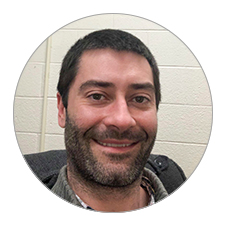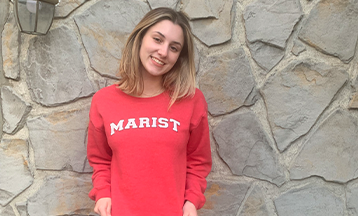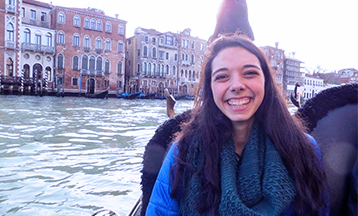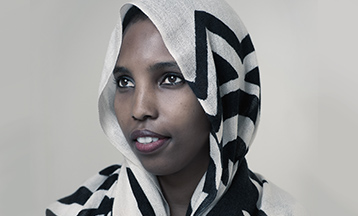-
About
Marist Commencement
Celebrating the Class of 2025
• The graduate ceremony will be held on Friday, May 23.
• The undergraduate ceremony will be held on Saturday, May 24.About
-
Academics
Marist Commencement
Celebrating the Class of 2025
• The graduate ceremony will be held on Friday, May 23.
• The undergraduate ceremony will be held on Saturday, May 24.Academics
-
Admission & Financial Aid
Marist Commencement
Celebrating the Class of 2025
• The graduate ceremony will be held on Friday, May 23.
• The undergraduate ceremony will be held on Saturday, May 24.Admission & Financial Aid
-
Student Life
Marist Commencement
Celebrating the Class of 2025
• The graduate ceremony will be held on Friday, May 23.
• The undergraduate ceremony will be held on Saturday, May 24.Student Life
- Athletics
Students talking in front of posters

Nicholas Montany
Poughkeepsie, NYAcademic School
Social and Behavioral SciencesCampus
New YorkDr. Nicholas Montany ’04/’08M is a school psychologist at Chancellor Livingston Elementary School in Rhinebeck, New York.
What brought you to Marist originally? Did you know you wanted to study psychology?
After completing two years in the liberal arts at Dutchess Community College, I applied to Marist as a psychology major. At that point, I was interested in a career as a guidance counselor, but my focus shifted when I started in the psychology program.
What are some highlights of your Marist experience?
I absolutely loved studying psychology, every aspect of it! Through my studies, I figured out that I wanted to become a school psychologist, so I ended up staying at Marist to complete my MA in School Psychology. After that, I was certified and ready to work.
Marist is a really special place. My overall experience was so positive, and my professors were such wonderful mentors. Marist really shaped me, and I feel like I owe much of my character, knowledge, and career to things I learned and experienced at the College. The school helped me develop as a learner, professor, and leader. I went from being an undergraduate who was petrified of giving a five-minute presentation to someone who was comfortable giving a 40-minute presentation in graduate school, to then enjoying giving a lecture for hours as a professor.
Are there specific faculty members who really had an impact on you?
During my undergraduate years, Professors Crispi, Van Ornum, and White were all terrific. Professor White’s research methodology class was extremely tough, but I learned so much. In the graduate program, adjunct professor Dr. Sal Massa (who was also a school psychologist in the Red Hook schools) was my mentor, and when he retired, I was given the opportunity to teach his courses. I taught in the MA in School Psychology program for four years and enjoyed every minute of it because I learned so much from my students.
How did your Marist educational experience prepare you for your career?
I always think of Marist as having the academic rigor of a Division 1 university, but with the home-y feeling of a community college. After completing my MA, I got my job as a school psychologist in Rhinebeck. I was interested in pursuing neuropsychological training, and the district supported the idea of having an in-house person with this expertise, so they paid for me to do a postgraduate diplomate in educational school neuropsychology. After finishing that, I wanted to continue my education, so I started a PsyD program at Fairleigh Dickinson University. I was working full-time during the day and doing my doctoral studies in New Jersey at night. Looking back, sometimes I don’t know how I did it!
What do you do as a school psychologist, and why do you find it rewarding?
In my current job, I essentially have three roles: assessment, counseling, and consulting. I provide psycho-educational evaluations for kids suspected of having disabilities who might be eligible for special educational services. I also provide cognitive, academic, social, and behavioral assessments. In my role as counselor, I see some students weekly with a goal of helping them become happy, healthy learners and develop strategies to be productive students. Finally, I consult with our teachers to help them conceptualize psychosocial development and serve on child study teams to help problem-solve for students who are struggling.
I love my job because I am obsessed with psychology! I find investigating the human experience fascinating and love trying to help our students live their best lives. Working with young children keeps me young. They’re so much fun. Kids provide fresh eyes on the world, and it’s an honor and a privilege to work with them. I’m also grateful for my fantastic co-workers.
Any advice you’d share with current Marist students, either undergraduates or students in the MA in School Psychology program?
Take advantage of the relationships you form with your peers and faculty members. Networking will help develop your knowledge, career, and personal growth. Also, while the curriculum and faculty are terrific, it’s really on you to be an active learner. Be self-aware about what your values and personality are. Work on your self-discipline. Your college experience goes so fast, and you only get to do it once!



